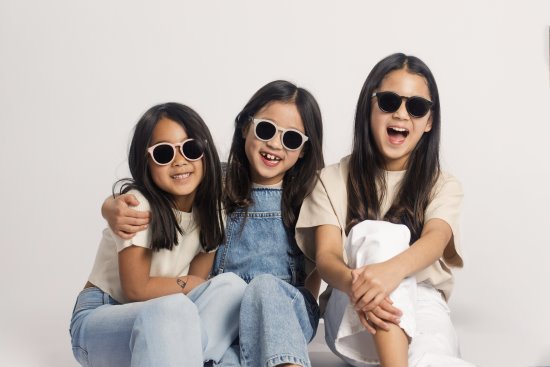
| ||||||
The management consultant went out to purchase sunglasses for her daughter, but found that styles suitable for Asian children, who tend to have shallow nose bridges, were rare. "Ray Ban made a low-bridge fit, but only offered it in limited styles and colors," Miyamoto noted.
She also looked for private labels, but couldn't find what she wanted; so, she found a great designer to work with to produce sunglasses in styles and colors that both kids and parents would like. She now produces and sells sunglasses in two sizes and four colors: deep matcha, lychee cream, mochi crumble, and yuzu. Her daughter got the first pair. Miyamoto held a launch event in June at the Quarry House in Wilder.
Miyamoto's glasses are designed in Europe and are being manufactured in Asia. She has conducted most of her meetings with designers and manufacturers via the Zoom meeting platform. Her marketing plan includes the use of influencers and grass roots word of mouth.
Her brand, Miko, is available online and in limited retail shops, including Min'Na in Berkeley. The Pacifica frame comes in one size for littles and another that fits bigger children and smaller adults. Although they are designed for people with low nose bridges, they are comfortable on almost everyone, Miyamoto says.
The design includes enhanced built-in support and high quality?polarized lenses?that reduce glare. The sunnies, as Miyamoto calls them, are also hypoallergenic?for sensitive skin, and her company is a local Asian American and Pacific Islander woman-owned?small business.
The sustainable acetate frames can also be used by opticians for prescription lenses. Each pair comes with a hard case and a microfiber cleaning cloth. She also offers accessories, such as straps and wet/dry bags. She is also exploring the use of recycled materials.
While continuing to work in technology full time, Miyamoto describes her sunglass business as a "passion project." "I am passionate about kids products and education," she says.
MIKO Eyewear website can found at https://mikoeyewear.com
Reach the reporter at:
